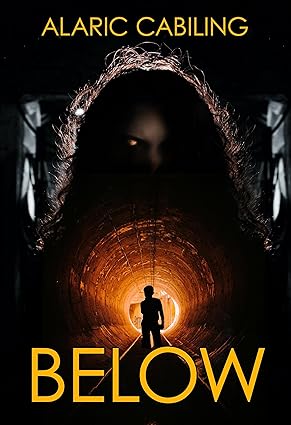“Poverty was one thing; a catastrophe was another.” It is 2022 and injustices and outbreaks are as common in his Filipino neighborhood as the heat and humidity for young Luzvimindo ‘Min’ Arnaiz. A resident of the shanties in ironically named Happyland, 12-year-old Min knows no other life beyond scavenging for valuables hidden in the ever-growing mountains of trash. Despite the aching poverty and unmistakable desperation, his childhood is anchored by loving parents and their sound reminders to pursue an education and stay away from drugs. Their guidance is wise and serves him well until the local drug crisis evolves into an army of flesh-eating fiends. After zombies overrun his town, consuming his family, friends, and dignity, Min has to run for his life. A lifetime of scavenging has made him resourceful enough to escape the decay in Happyland and find his way to the United States. But between COVID and its own inequity troubles, America has no love for an immigrant boy from a land filled with dangerous drugs and zombies. So Min does what he can and disappears into the literal underbelly of the city. In the tunnels of New York City, he evades the authorities, but the poverty plague knows no physical boundaries.
In one part of the Philippines, an affluent family carefully considers whether their canned tuna contains too many cheap additives. Mere miles away, families in Tondo’s slums are neck-deep in their refuse, thankful to find those same discarded, recyclable cans to buy food for themselves. This cruel circle-of-life irony permeates the landscape in Below, and the heavy symbolism is never lost on readers. Themes correlate poverty, drugs, consumerism, and corruption while the antithesis, community and education, remains elusive for too many. While the novel features expected jump scenes, close calls, and monstrous turned-creatures feasting on entrails like rope sausages, the real terror is in the unsubtle messaging. Min’s downward spiral acts as a depressing mirror of today’s problems, facilitating a fearsome atmosphere that is drab and hopeless. Though good values were instilled within him, Min was unquestionably disadvantaged as a boy. Thus the heartbreak is even more painful when he turns his back on his upbringing, embraces behaviors he fought so hard against, and becomes a victim of his circumstances. While the terrors span multiple continents, the verifiable spectacle of impoverished Filipino children wading through filth to survive is a vivid reminder of a reality most would prefer to remain ignorant of. Disturbing but no more demented than humans can be to one another, the apocalyptic novel Below is a widespread zombiegeddon with an appositely bleak tone.







